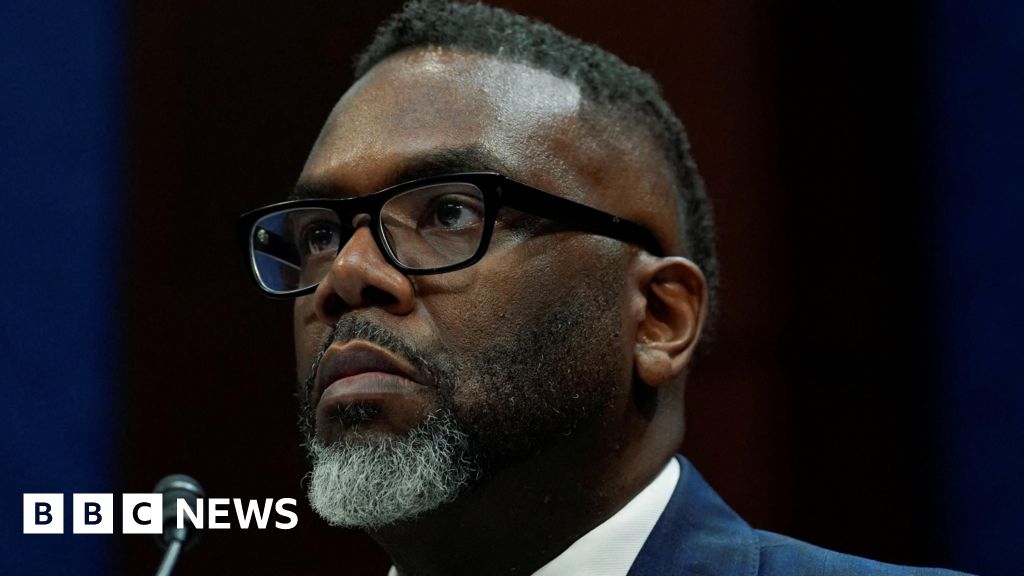Murkowski Slams White House Pocket Rescission Proposal

Murkowski Slams White House Pocket Rescission Proposal
In a bold move, Senator Lisa Murkowski of Alaska has singlehandedly reshaped the White House's previous clawback request. The proposal, which aimed to cut $15 billion in previously approved federal spending, has been met with strong opposition from Murkowski and other key Republican lawmakers. Murkowski's vocal criticism of the plan has put the White House in a difficult position, with some experts questioning whether the proposal will make it through Congress.
The Power of One Voice
Murkowski's staunch opposition to the pocket rescission proposal highlights the power of a single voice in Washington. Despite the White House's efforts to rally support for the plan, Murkowski's influence and determination have managed to derail the proposal for the time being. This move has not only caught the attention of her colleagues, but also the media and the public as she continues to stand her ground against the White House's proposal.
The Future of Federal Spending
The debate surrounding the pocket rescission proposal is a critical one, as it has the potential to shape the future of federal spending. Murkowski's strong stance against the plan has brought into question the White House's approach to cutting spending, and has also sparked discussions about the effectiveness of clawback requests in general. As the debate continues, all eyes will be on Murkowski and her fellow lawmakers
About the People Mentioned
Lisa Murkowski
Lisa Murkowski is a Republican U.S. Senator from Alaska who has served since 2002. Born in 1957 in Ketchikan, Alaska, she comes from a politically active family; her father, Frank Murkowski, appointed her to the Senate after leaving his seat to become governor. Before her Senate career, she served three terms in the Alaska House of Representatives and practiced commercial law in Anchorage. In 2010, after losing the Republican primary, Murkowski won reelection in a rare and notable write-in campaign, the first successful Senate write-in since 1954[1][2][6]. Murkowski is known for her focus on economic development, energy policy, and environmental issues relevant to Alaska, such as oil and gas production and responsible resource development. She served as Chair and remains the longest-serving Republican member of the Senate Energy and Natural Resources Committee and is Vice Chair of the Senate Indian Affairs Committee. Her legislative work includes championing the Amber Alert system and supporting Alaska’s fishing industry. She has also taken moderate stances on social issues, voting to repeal "Don't Ask, Don't Tell," supporting same-sex marriage, and backing abortion rights legislation[1][2][4]. Throughout her Senate tenure, Murkowski has cultivated bipartisan relationships and leveraged her seniority to secure significant policy achievements for Alaska, including infrastructure investment, COVID-19 relief for Alaskans, and basing F-35 fighters at Eielson Air Force Base. She continues to advocate for Alaska’s development balancing economic opportunity and environmental stewardship. In 2025, she remains an active legislator involved in veterans’ affairs and health policy legislation[1][3][4].
About the Organizations Mentioned
White House
The **White House Office** is a central organizational component within the Executive Office of the President of the United States (EOP), tasked with supporting the President in managing day-to-day operations, policy formulation, and political affairs. It is headed by the White House Chief of Staff and staffed by senior aides who report directly to the President, including those with titles such as Assistant to the President and Deputy Assistant to the President. These staff members are mostly political appointees without the need for Senate confirmation, allowing the President considerable discretion in shaping the office to suit each administration's priorities[1]. Historically, the White House Office was established in 1939 through Reorganization Plan 1 and Executive Order 8248 to provide immediate assistance to the President. It functions as the nerve center for presidential staff, physically located primarily in the West Wing, and plays a pivotal role in managing the President’s policy agenda, communications, and political strategy. Its flexible organization allows each President to tailor the staff composition and roles according to their governance style and objectives[1]. In the current context of 2025, the White House Office operates under the administration of President Donald J. Trump, who returned to office after the 2024 election. His administration emphasizes rejecting prior policies deemed extremist and focuses on enhancing quality of life, economic growth, and American energy dominance. The administration includes Vice President JD Vance and First Lady Melania Trump, among others, with a Cabinet advising on various governmental functions[4][6]. Recent initiatives linked to the White House’s operational sphere include the establishment of a new **Department of Government Efficiency (DOGE)** aimed at modernizing federal technology and software to boost government productivity. The DOGE agenda is implemented through the renamed United States DOGE Service within the Executive Office, reflecting a concerted push to leverage technology for administrative modernization[5]. Notably, the White House Office also coordinates national security and homeland security functions through the National Security Council staff, underscoring its central role















